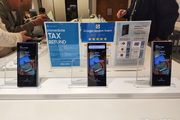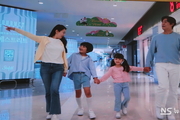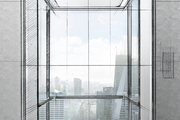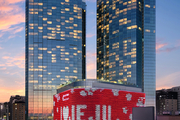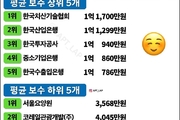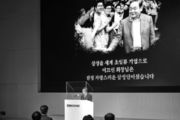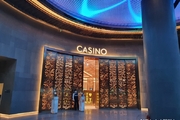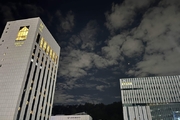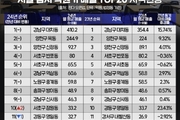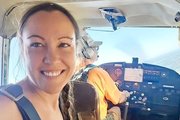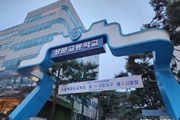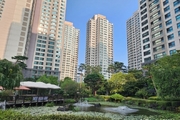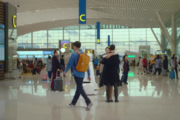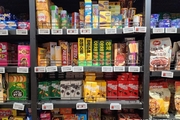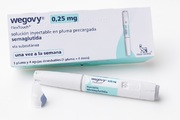![Would You Love(WYL) co-founder Konrad Becker delivers a talk at Dulwich College Seoul. [WYL] Would You Love(WYL) co-founder Konrad Becker delivers a talk at Dulwich College Seoul. [WYL]](/data/photos/202305/680_661_3424.jpg)
[NewsSpace=JeongYoung Kim] The tall figure of Konrad Becker stood looking out at a sea of hundreds of young faces in Seoul’s Banpo area, not quite knowing what to expect from his audience. Originally from Germany but based in South Korea, he had been invited for Earth Day 2023 to deliver the latest “Dulwich Talk” in a thought leadership series hosted by international school Dulwich College Seoul (DCSL). Students of various ages packed out the auditorium, waiting to hear about Becker’s vision for a better future through plastic recycling and Would You Love (WYL), the Seoul-based startup he co-founded in 2021.
The problem with plastic
WYL has made plastic the initial target of its mission to “counter contemporary problems,” driven by reports in recent years citing South Korea as one of the world’s leading contributors to plastic waste. For instance, the Korean Peninsula has contributed to 10% of the mostly plastic debris found in the so-called Great Pacific Garbage Patch, according to findings published late last year by Scientific Reports. Only China and Japan have released more waste into this floating heap of trash that is 16 times bigger than South Korea.
An even more recent report from Greenpeace Korea and Chungnam National University (CNU) researchers demonstrated how demand for single-use plastics and disposable products rose in line with the COVID-19 pandemic, as 5.3 billion disposable plastic cups were used in South Korea in 2020 - up 57% from 2017. With CNU researchers cautioning that South Korea will produce 1.5 times more plastic waste by 2030 compared with 2020, they have also raised the concern that the country was only recycling 16.4% of plastic waste as of 2021.
It was fitting, then, that Becker should have been addressing the plastic waste problem three days after Earth Day, which fell on a Saturday this year. He was addressing students who have also been playing their part by reducing the packaging used for school snacks, banning plastic knives and glitter, and helping to pick up trash while jogging (or "plogging" as the activity is known) by the Han River. DCSL seeks to inspire global citizenship among its students by pursuing the UN Sustainable Development Goals, not only by infusing them into classroom learning but also applying them to other community activities such as reusing gently used books and uniforms, giving up meat on Mondays, and fundraising for Greenpeace.
Turning a messy problem into an elegant solution
WYL makes and sells furniture and interior design elements using plastic that it collects from different sources before recycling in its workshops. Yet, that description does not do justice to the incredibly intricate patterns that make WYL’s finished products look like works of art - more akin to marble in appearance than plastic, let alone plastic recreated from melted down bottle tops.
WYL’s plastic journey started two years ago. Becker and his co-founders did not know much about plastic recycling when WYL got off the ground, but he said during his “Dulwich Talk” that they were "passionate and willing to learn." They relied on savings as they built their own machinery using blueprints that are freely available online, before experimenting until they had developed a signature style in a sector with very few competitors for now.
The students were surprised to learn that one chair he showed them sells for around 600,000 won ($450). After all, this is premium furniture that is being sold business to business because, as Becker said, “recycled plastic is more expensive.” Still, the business is thriving as various public and private entities recognize both the importance of WYL’s mission and the quality of their products. The startup has expanded its workforce to seven and opened up a larger facility in Paju, Gyeonggi Province.
WYL has gained a reputation for itself via social media and word of mouth. It is also supported by government funding and recognition such as its listing on Precious Plastic Seoul, which is part of a global community seeking to promote plastic upcycling. WYL’s early successes are a great encouragement for anyone seeking to build a social enterprise that reuses scarce resources, creates jobs, and increases productivity. WYL’s experience may result in other startups following suit, proving the viability of businesses that prioritize sustainability.
Dulwich students listened intently and asked questions about what they could do to impact the environment. Becker responded that they could educate themselves about the issues, and use social media to forward the cause. On a more personal level, he urged, “Ask yourself, can we do this particular behavior forever, what will happen if we continue?” It is a question that might better guide choices, from individuals all the way up to corporate policies, and hopefully a sustainable future.




